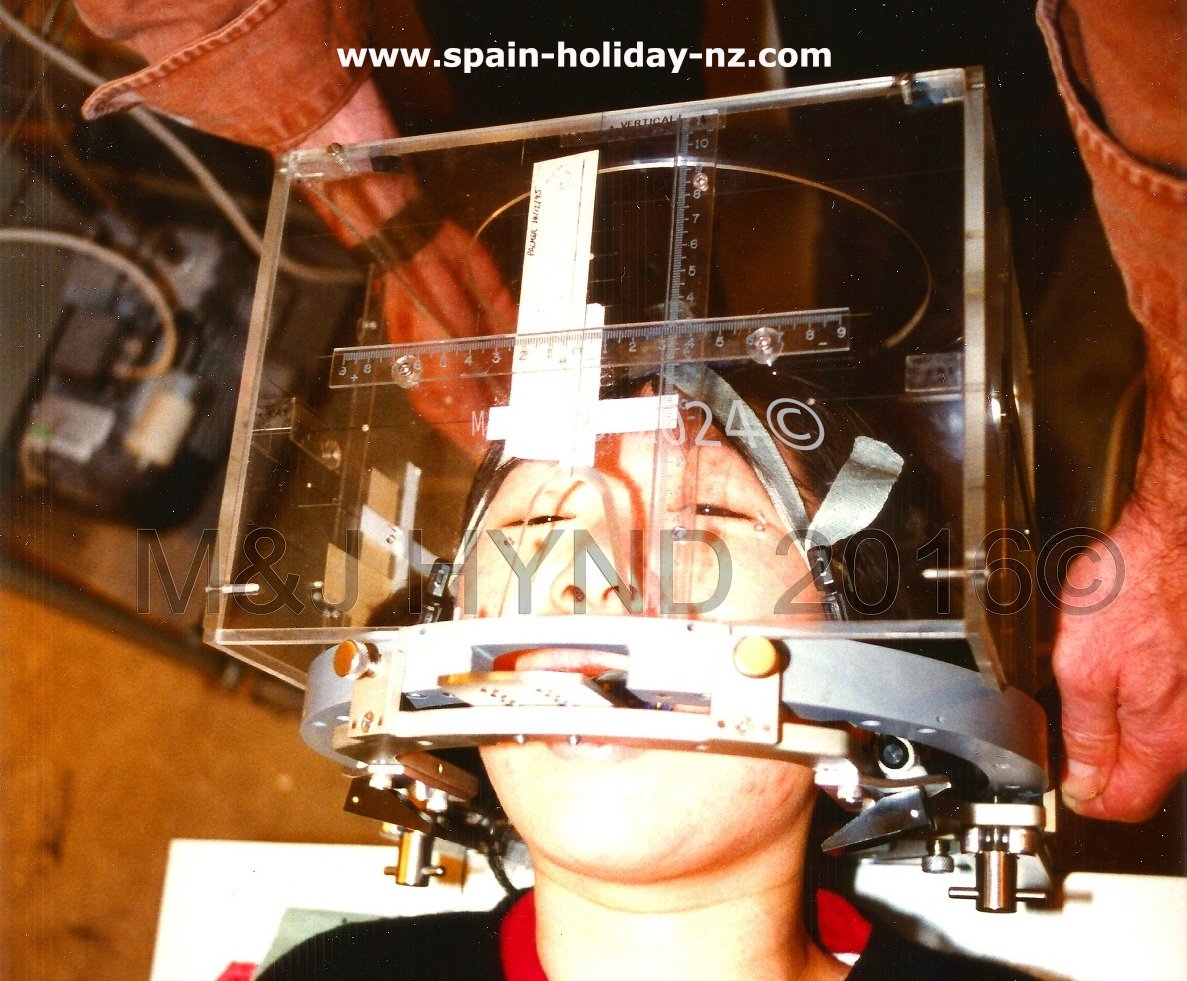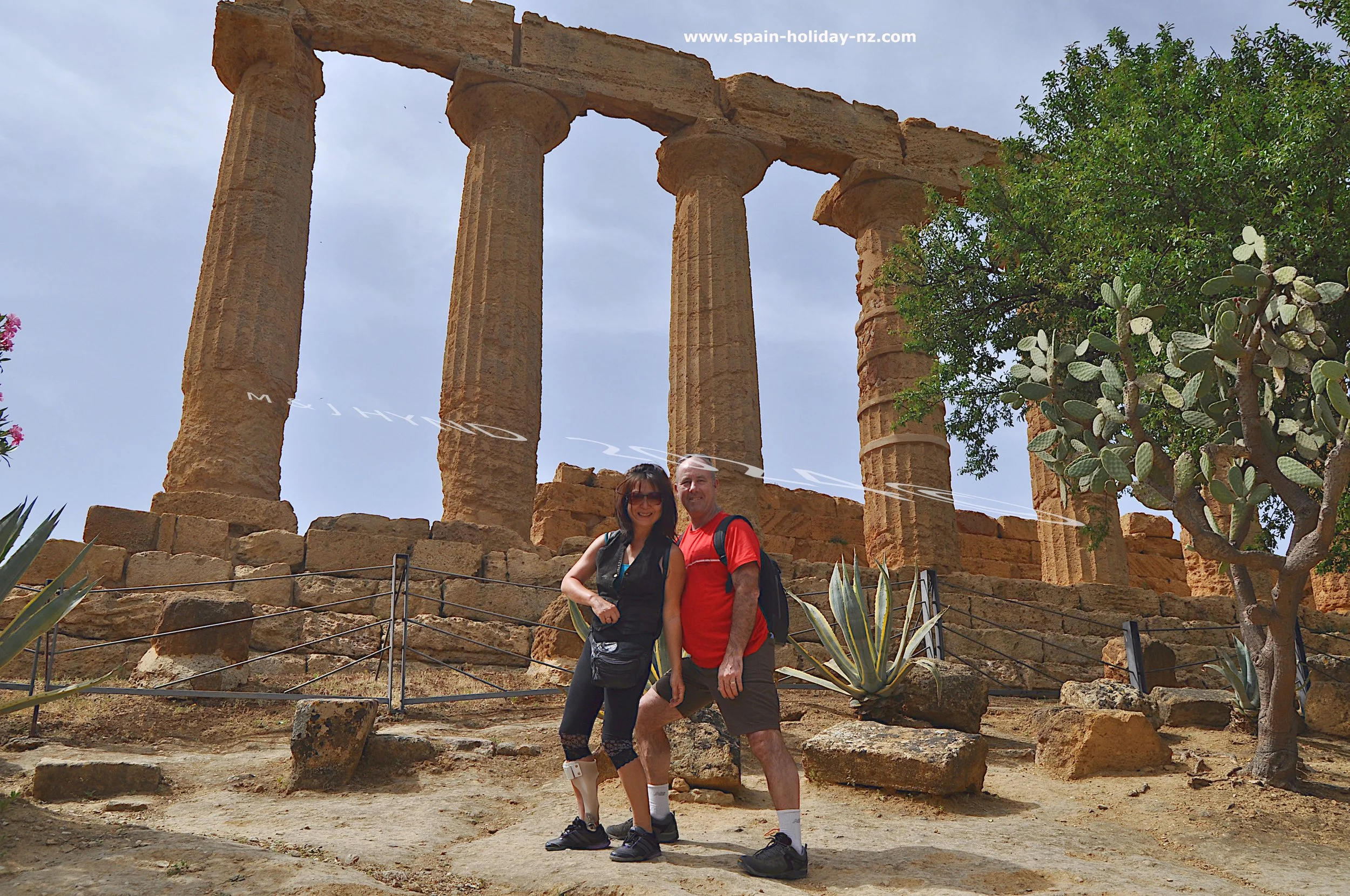AUT - Task Challenge Study: Think, Communicate, Movement
Recently a PhD Candidate researcher contacted me to ask if I would be interested in participating in Auckland University of Technology (AUT) Task Challenge Study series of participation sessions, at AUT AIH Neuro Clinic. As I was not available for the next few months, we settled on a dates later this year.
''..This study will help us learn more about how people report their experience of easy and hard tasks that involve thinking, communication, and movement. You are invited to take part in a study exploring how people with stroke and rehabilitation therapists rate task challenge of common stroke rehabilitation tasks. This may help researchers, therapists, and people with stroke to set task challenge in a way that promotes recovery and improves people's experience of and outcomes from stroke rehabilitation, improve stroke rehabilitation and learn more about measuring your perspective of task challenge...''
Historical relevance: I collapsed, unconscious, having had a massive AVM (ArterioVenous Malformation) brain haemorrhage in 1995, whilst working in London, UK.
The ambulance was called immediately, emergency admission to a local hospital, and initial triage was done. Neurosurgery was urgently required that they couldn’t perform so I was transferred to a second hospital in central London, 5 hours after the incident. Another 3 hours delay until Neurosurgeons spent 9 hours of open-brain surgery, to stem the blood-flow in my brain and saved my life. See the medical event article for more information.
... I had to Re-learn Life after the event; I couldn't: stand or walk, talk, read, write, remember (short-term memory was completely blitzed), paralysed on the right side, subluxed shoulder; wheelchair-bound, the list goes on. I was right-handed, now doing things with only my left-hand is challenging - so, this study has particular interest for me.
AUt aih Task Challenge, auckland, nz: 2024
This research could address aphasia* which still is an issue for me, 29 years after the AVM-stroke; as well as footdrop & clonus, paralysed right arm, etc.. [Had the AVM condition since my birth, a time-bomb in my brain, unbeknownst to me.] Bring on the research...
*the partial or total loss of the ability to articulate, a language disorder caused by damage in a specific area of the brain that controls language expression and comprehension. Persons with aphasia may have trouble understanding, speaking, reading, or writing. I had these dire deficits and more besides, as the aftermath of the events in 1995.
We met the lovely researcher who taught Physiotherapy at AUT, also a candidate doing her PhD. She was very personable and professional, explained the process of the study, and documentation. The paperwork in part, was to get to get gist of my condition for the study.Later I met the physiotherapist research-assistant.
Charing cross hospital, central london, uk: 1995
stereo-tactic frame for linear accelerator /second surgery, st. barts hospital central london, uk: 1995
Life after my AVM brain haemorrhage is vastly different from now, 29 years later. Back then, I couldn't stand without nurse's help or walk, I was wheelchair-bound, with no-end in sight; had no short-term memory, very little speech. I couldn't get out of bed without assistance.
I hadn't the words to say what I wanted (I had to relearn English, for a second time), even if I could string short sentences together, which I couldn't. Short-term memory was the issue, I played real-life charades with Murray, my husband… ..it took many many years to build up a usable vocabulary.
Now, other than a marked gait pattern when walking, with balance and a paralysed arm (clonus, footdrop, sub-luxed shoulder, etc. are relatively hidden effects to the general public) - passers-by when they see me at present assume the legbrace/AFO (Ankle-Foot Orthosis) is quite recent and temporary.
When seated, my legbrace is not visible, my paralysed arm is hidden, and I'm eating lunch in a cafe with one hand - I look relatively ok. It is only when I move...
In the Task Challenge study - there were sets of balance-testing, sit and stand, simple and a little bit harder; doing walking exercise, simple and a little bit harder. Memory tests, attempting arithmetic ..
The second day, was similar to the first day of tests, and mix the Task challenges up. More complex thinking & doing activities – were a little bit more taxing. Also, a section of upper-body tasks, which I found very very challenging. I rated the challenges as required by the study... ..
Digression: In 1995, Speech Therapy was very good, if a touch spasmodic. Once a week, when I was an in-patient for 3 months in Charing Cross Hospital (CXH)– to piece together 'speech' for a whole lifetime..? - certainly a challenge, to relearn English was just a start...
I had the AVM Brain haemorrhage, at 34. The Speech therapist did a stellar job, showing word-cards, before-after pictures, etc. The premise was so that I would be able to make sense of speaking to somebody...
My mouth drooped after the AVM-stroke; right-facial-muscles didn't really work at all, I couldn't feel half my face. I couldn't pronounce words, even if I'd remembered them, which I didn't; or how to say it. I couldn't write them down as I was a right-handed person – it'd had to wait till I learnt to write with my left hand...
Thoughts would come and quickly go, so fleetingly that I had no chance of pinning them down. My mind was like a sieve with giant holes, the hazy, half-formed impressions instantly disappearing.
Before the medical event…
aswan, egypt
giza plateau, cairo, egypt
knossos palace ruins, crete, greece
santorini, greece
after the medical event, wheelchair bound made it difficult to lose weight….
The Task Challenge required one to walk backwards - ten years or so ago, I was only concerned with walking forwards. My concentration was focussed on not-to-fall, as I was unsteady on my feet, even with a walking stick..
Around that time, I was given the opportunity of doing pool-rehab. Warm water soothes and relaxes muscles, released from my encasing AFO-legbrace. My right foot still has footdrop, etc, so water-shoes/reef-shoes were a worthwhile investment.
Back then, my stroke-impaired leg had a tendency to float out of the water – it was quite unexpected, and I had little control over it. Clinging onto the side of the pool, and no balance – perhaps not a promising beginning... Persevered with walking exercise, ..going to the left, going right,... backwards.., forwards in the warm water with the hydrotherapist, much later on, was possible - See video: Walk in Swimming pool video.
Jump on a trampoline-contraption (located at a corner of the pool), said the hydrotherapist - ..wha..who.. me? - much further on. More challenging definitely.. I approached it with caution...
More so nowadays, even armed with a walking-stick - around cyclists careening too close, children/people on e-scooters hurtling behind one or overtaking on footpaths - walking:
It was/is a constant: glance up and around, on the lookout for loose flagstones or sudden dips on pathways.
Be aware of small dogs that could trip you up. 110% consideration is required, big or small, when you have missing or impaired faculties...
Task Challenge of stepping over obstacles (on dry land, at AUT AIH premises, not the hydrotherapy pool) - .. did it somehow trigger something in my long-ago memory that I had attempted to do a similar activity before. The issue with clonus in my affected leg - an abnormal reflex action, rhythmical involuntary muscles-contractions, notwithstanding...
The 'clonus'-effect for me, was something I couldn't control for this Task-challenge study. For example: I couldn't step-on, step-off escalator for a very long time after my AVM-stroke, even when I was wheelchair free. I was 'walking'... it should have been a relatively straight-forward exercise, was my thought.
Eagerly looking forward to going to the shops, attempted to use the escalators... I had an excruciatingly slow shuffling/shambling walk, at that time - it really didn't occur me that I wouldn't be able to do it: step-on... and step-off the escalator. The clonus-spasm thrum-thrums, sometimes quite violently jerking until it dissipated - my body had other ideas: to fall over on attempting the use of the escalator would not be a pretty sight. Thus, preventing me from doing the quite simple task. So close, and not within reach, as yet.. See video: Step On/Of Escalators (2018 - 14)..
My clonus is present throughout the day - uncontrollable bounce-thrums interferes a lot with my balance & gait-pattern. The Task challenge: stepping-over obstacles. Clonus-spasms in my right leg ..however big or small, were there. I tried, and tried - though I couldn't step over, for the first week.
The second 2nd week of Task Challenge, was similar to the first weeks' exercise. Rate the challenges/tasks was the name of the game; different stroke-survivors could have different reactions. I could find the same exercises very challenging, or gradually easier, or not possible for me at this stage.
Another activity: feet abutting each other, eyes closed, for example. I stood there for the time allocated for the Task challenge, ... wrestling with my inclination to ... ''give-up''!! My right leg muscles twitched in some way, jolts-of-pain/discomfort, ...about to keel-over and fall.
I rated the test as ‘quite challenging to me’ – though outwardly, I had completed the task without any noticeable hindrance whatsoever.. (..don't think the researchers noticed my predicament) ... and I would definitely want the therapist to listen to the reason behind my action.
To 'verbalise' is very important to me. When I couldn't speak or communicate in any way that made sense to Occupational therapist, Physiotherapist, Speech therapist - was so very frustrating. In fact, abysmal, during the first 10 - 12 years of my life-after-Stroke. I'm able to speak more now - trying not forget what I want to say to the therapist, is good practice for me.
In the safe-space of the testing room with flat floors at AUT AIH -... could I be persuaded to close my eyes while walking as was required by the Task Challenge? Also, physiotherapists at the ready in case they needed to assist, in a hearbeat...
Sensation loss affecting the right side of my body, and not being able to feel much when I have my eyes closed - will I do more damage to myself - is always my conscious thought. For that reason, I’m extremely cautious.
Doing something as simple as sit-to-stand, not being able to feel bum-on-seat is very disconcerting. In the past 10 years I've keeled-over and fallen down on my affected-side before: I'd misjudged the distance to the edge of the seat. Hence, concentration and judging are high priority as well.
2015 onwards…
one-handed photographer: selfie at charles bridge, prague
one-handed chef: make chocolates and anti-gravity cake
one-handed chef: make my 60th birthday cake
komtar glass walk challenge, penang, malaysia
agrigento greek ruins, sicily, italy
las setas monument, seville, spain
Since my AVM-stroke in 1995, I'd .. walked, even with gait issues,.. devised diverse one Hand activities – to aid myself firstly, and any persons who may find it useful, a DIY-approach to stroke-rehab; participated in research-studies with universities such as this in more recent years,... See page: OneHand function [2016].
By the end of the sessions of the study, I thought I did relatively well, compared to my first session. Within myself, I've gained valuable insights. All the best, to team of researchers at AUT for Task Challenge study, hope they have good results; my participation-collaboration in this initiative.
Thanks to the following:
Associate Professor Nada Signal, Principal Investigator / Physiotherapist, AUT
Emma Gomes, Co-investigator, Research Officer / Physiotherapist, AUT
: Syed Alamdar Hussain, assistant researcher
















